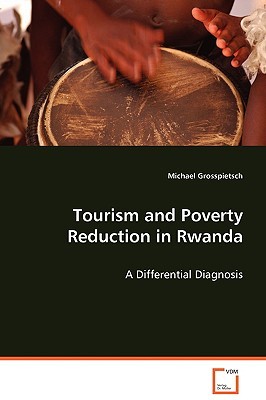
- We will send in 10–14 business days.
- Author: Michael Grosspietsch
- Publisher: VDM Verlag
- ISBN-10: 363907579X
- ISBN-13: 9783639075793
- Format: 15.2 x 22.9 x 2.3 cm, minkšti viršeliai
- Language: English
- SAVE -10% with code: EXTRA
Reviews
Description
In the past few decades, an impressive amount of tourism and development literature has emerged under terms such as pro-poor tourism, sustainable tourism, responsible tourism, ethical tourism or ecotourism. Numerous models for analysis and compilations of best practice deal with tourism's poverty reducing impacts on a micro-level. But analyses of macro contexts have, at best, remained piecemeal. Based on his Ph.D. research, the author Dr. Michael Grosspietsch offers a first attempt to analyze tourism's poverty-reducing impacts in a holistic way for an entire country. He develops a comprehensive methodology that borrows from general development economics and international relations, and conducts a differential diagnosis for Rwanda. Interlarded with theoretical introductions to current-day best practice in poverty reduction and tourism as well as one of the most complete presentations of the Rwandan development context, this book is valuable reading material not only for scholars and researchers but also for practitioners in the field of responsible tourism.
EXTRA 10 % discount with code: EXTRA
The promotion ends in 22d.13:09:30
The discount code is valid when purchasing from 10 €. Discounts do not stack.
- Author: Michael Grosspietsch
- Publisher: VDM Verlag
- ISBN-10: 363907579X
- ISBN-13: 9783639075793
- Format: 15.2 x 22.9 x 2.3 cm, minkšti viršeliai
- Language: English English
In the past few decades, an impressive amount of tourism and development literature has emerged under terms such as pro-poor tourism, sustainable tourism, responsible tourism, ethical tourism or ecotourism. Numerous models for analysis and compilations of best practice deal with tourism's poverty reducing impacts on a micro-level. But analyses of macro contexts have, at best, remained piecemeal. Based on his Ph.D. research, the author Dr. Michael Grosspietsch offers a first attempt to analyze tourism's poverty-reducing impacts in a holistic way for an entire country. He develops a comprehensive methodology that borrows from general development economics and international relations, and conducts a differential diagnosis for Rwanda. Interlarded with theoretical introductions to current-day best practice in poverty reduction and tourism as well as one of the most complete presentations of the Rwandan development context, this book is valuable reading material not only for scholars and researchers but also for practitioners in the field of responsible tourism.


Reviews